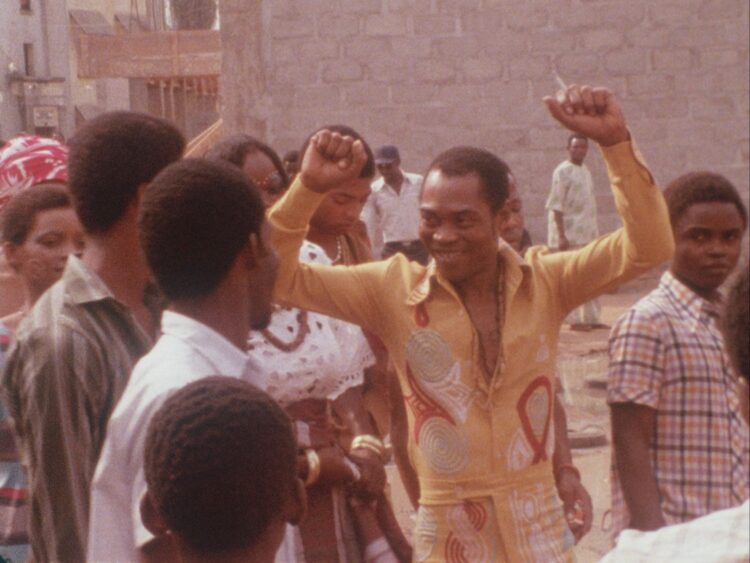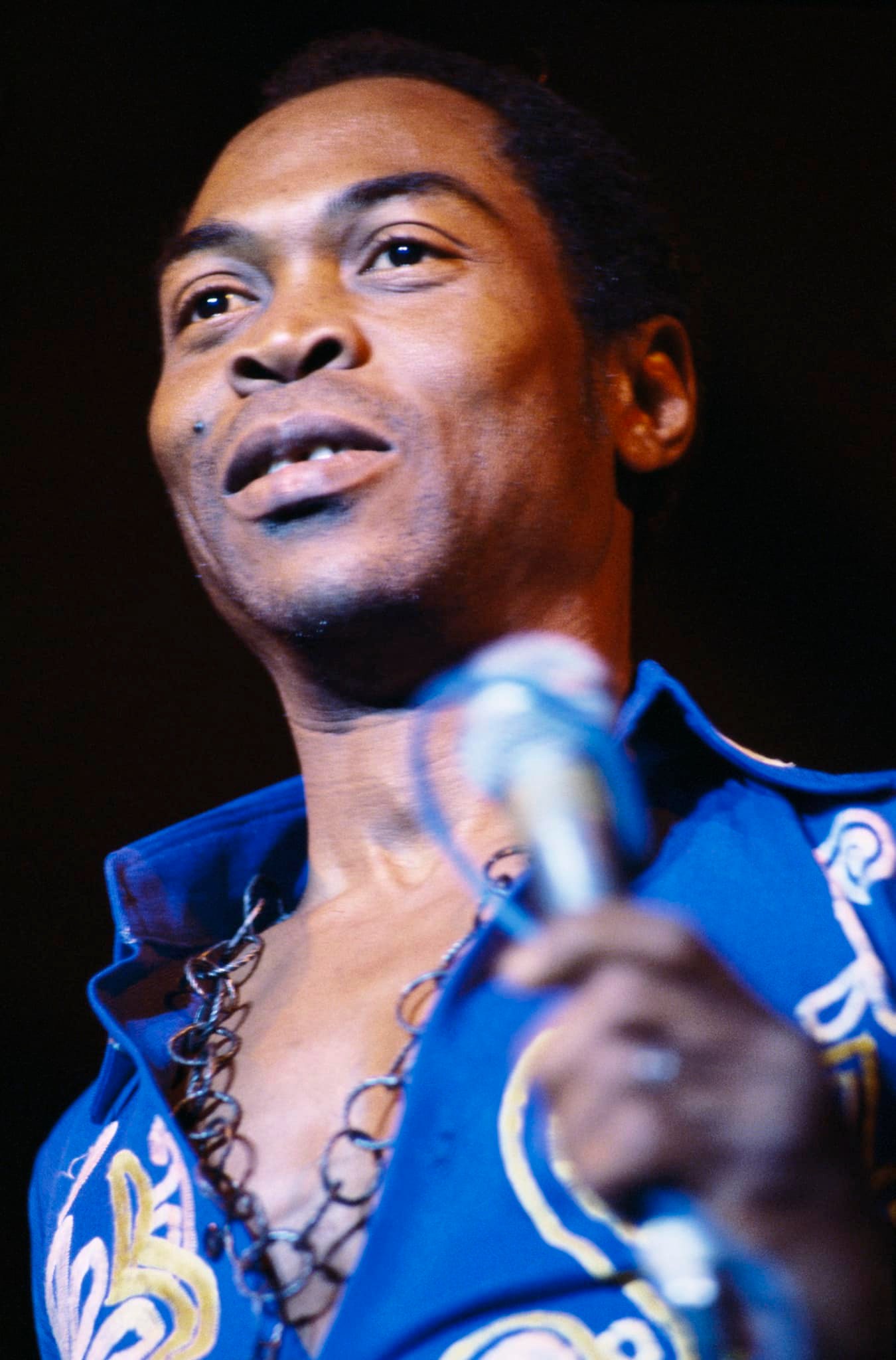Fela Aníkúlápó Kuti
“The secret of life is to have no fear”
by DALE RICARDO SHIELDS
“Hailed as the Muhammad Ali, James Brown and Bob Dylan of Africa all wrapped into one, modern hip-hop wouldn’t exist without Fela Anikulapo Kuti, the late Afrobeat star.”
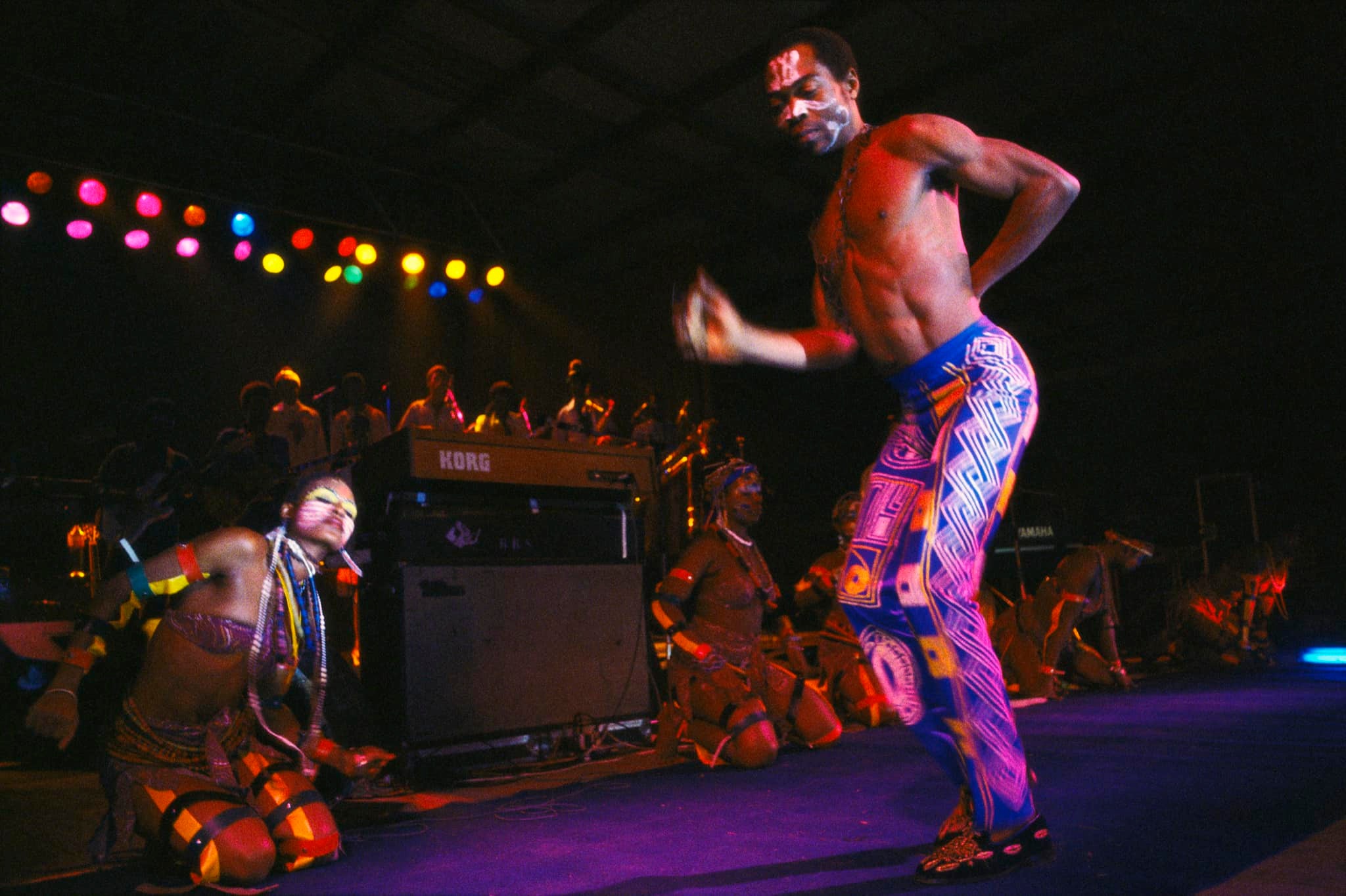
“I refuse to live my life in fear…”
Fela Aníkúlápó Kuti, was a Nigerian multi-instrumentalist, bandleader, composer, political activist, and Pan-Africanist. He is regarded as the pioneer of Afrobeat, an African music genre that combines traditional Yoruba percussion and vocal styles with American funk and jazz.[Wikipedia]
Born: October 15, 1938 – Abeokuta, Nigeria
Died: August 2, 1997 – Lagos, Nigeria
Children: Femi Kuti, Seun Kuti, Yeni Kuti, Kunle Anikulapo Kuti, Sola Kuti, Shalewa Kuti, Motunrayo Anikulapo Kuti
Parents: Funmilayo Ransome-Kuti, Israel Oludotun Ransome-Kuti

Fela Kuti, by name of Olufela Olusegun Oludotun Ransome-Kuti, also called Fela Anikulapo-Kuti, (born October 15, 1938, Abeokuta, Nigeria—died August 2, 1997, Lagos), Nigerian musician and activist who launched a modern style of music called Afro-beat, which fused American blues, jazz, and funk with traditional Yoruba music.
The Funky African: Questlove on Fela
Kuti was the son of feminist and labor activist Funmilayo Ransome-Kuti.
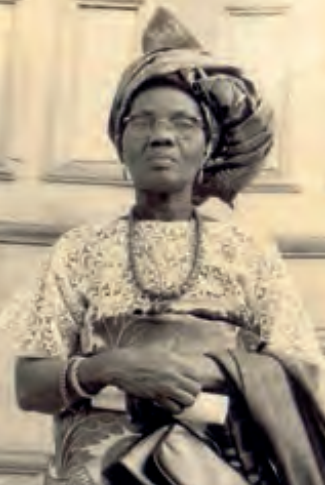
Funmilayo Ransome-Kuti [Wikipedia]
Chief Funmilayo Ransome-Kuti, M born Frances Abigail Olufunmilayo Thomas; 25 October 1900 – 13 April 1978), also known as Funmilayo Anikulapo-Kuti, was a Nigerian educator, political campaigner, suffragist, and women’s rights activist.
Fumilayo Ransome Kuti was born in Abeokuta, Ogun State, Nigeria, and was the first female student to attend the Abeokuta Grammar School. As a young adult, she worked as a teacher, organizing some of the first preschool classes in the country and arranging literacy classes for lower-income women.
During the 1940s, Ransome-Kuti established the Abeokuta Women’s Union and advocated for women’s rights, demanding better representation of women in local governing bodies and an end to unfair taxes on market women. Described by media as the “Lioness of Lisabi”, she led marches and protests of up to 10,000 women, forcing the ruling Alake to temporarily abdicate in 1949. As Ransome-Kuti’s political influence grew, she took part in the Nigerian independence movement, attending conferences and joining overseas delegations to discuss proposed national constitutions. Spearheading the creation of the Nigerian Women’s Union and the Federation of Nigerian Women’s Societies, she advocated for Nigerian women’s right to vote and became a noted member of international peace and women’s rights movements.
Ransome-Kuti received the Lenin Peace Prize and was awarded membership in the Order of the Niger for her work. In her later years, she supported her sons’ criticism of Nigeria’s military governments. She died at the age of 77 after being wounded in a military raid on family property. Ransome-Kuti’s children included the musician Fela Kuti, doctor, and activist Beko Ransome-Kuti, and health minister Olikoye Ransome-Kuti.
Legacy
Biographer Cheryl Johnson-Odim notes that Funmilayo Ransome-Kuti’s name remains well known throughout Nigeria and that “no other Nigerian woman of her time ranked as such a national figure or had [such] international exposure and connections”. Nigerian activist Hajiya Gambo and politician Margaret Ekpo both named Ransome-Kuti as a strong influence on their work, and Nigerian-British feminist writer Amina Mama has cited Ransome-Kuti’s activism as having shaped her personal beliefs and perspectives. Ghanaian politician Kwame Nkrumah (later the first Prime Minister of Ghana) was heavily inspired by Ransome-Kuti in his early organizing of the Ghana Women’s Association.
In 2012, the Nigerian government proposed the inclusion of Ransome-Kuti’s image on the new N5000 currency note. In August of that year, Ransome-Kuti’s grandson, musician Seun Kuti, stated to the media that he found the proposal “ludicrous to say the least”, in light of the government’s role in his grandmother’s death. Kuti said that his family had never received an apology for the assault on their compound, with official government statements declaring that Ransome-Kuti had been attacked by “1000 unknown soldiers”.
Ransome-Kuti was portrayed in the 2014 film October 1 by actress Deola Sagoe. On 25 October 2019, Ransome-Kuti was posthumously honored with a Google Doodle created by Nigerian-Italian illustrator Diana Ejaita. [Wikipedia]
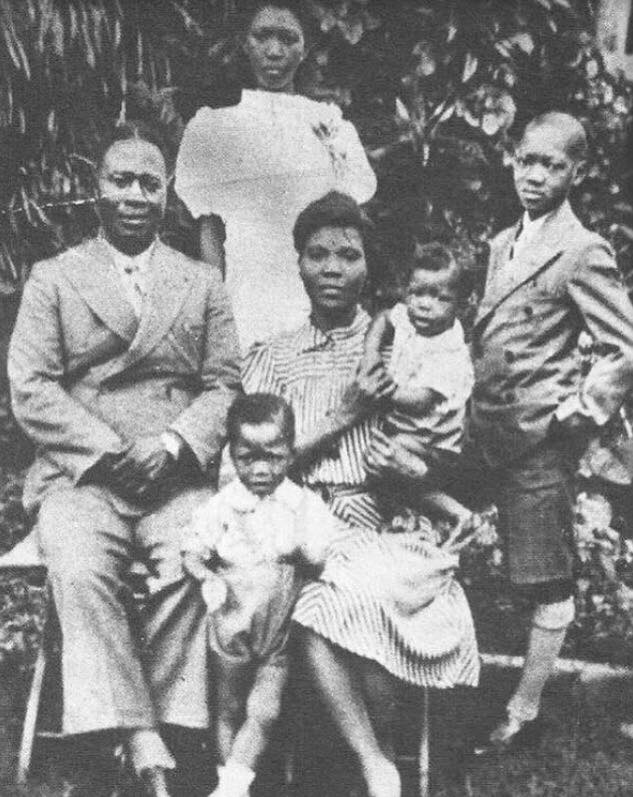
The Ransome-Kuti family is a Nigerian Yoruba political family noted for its simultaneous contributions to art, religion, education, and medicine. It belongs to the Nigerian bourgeoisie, and also has historic links to the Nigerian chieftaincy system. [Wikipedia]
History
The first member to bear the name Ransome, the Reverend Josiah Jesse “J.J.” Ransome-Kuti, adopted it in honor of the Anglican missionary who had first converted his family to Christianity. He followed his father Likoye Kuti — an Egba griot — into the musical vocation, and wrote a series of popular hymns in the Yoruba language while serving as an Anglican cleric.
The descendants of J.J.’s son, the Reverend Israel Oludotun Ransome-Kuti, and Chief Funmilayo Ransome-Kuti include a Health minister (who had also served as a university professor), a political activist (who would himself later be adopted as an Amnesty International prisoner of conscience), and six further musicians (including one who founded and led a political party and three Grammy Award nominees).

The Ransome-Kutis have been known to form marital unions with other families of the Yoruba elite: the branch descended from Chief Funmilayo Ransome-Kuti is a sept of the aristocratic Jibolu-Taiwo family of Egbaland by virtue of its descent from her, while the one descended from the Reverend Samuel Ayodele Soyinka, the husband of Grace Eniola Jenkins-Harrison, is related to the royal family of Isara-Remo through him. [Wikipedia]
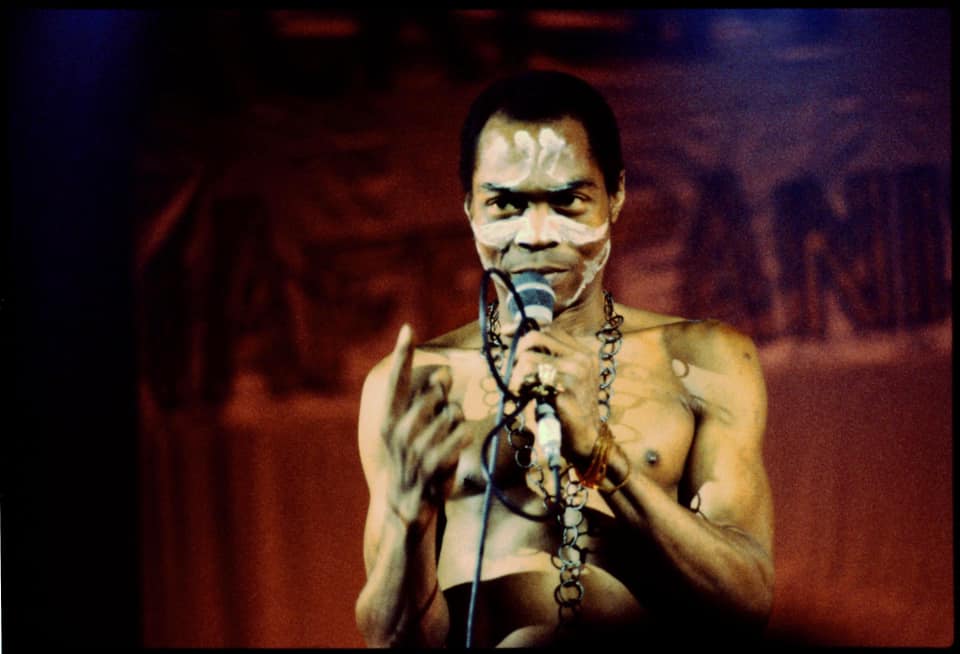
UNITED KINGDOM – JANUARY 01: BRIXTON ACADEMY Photo of Fela KUTI, performing live onstage (Photo by David Corio/Redferns)
“He was a tornado of a man, but he loved humanity“
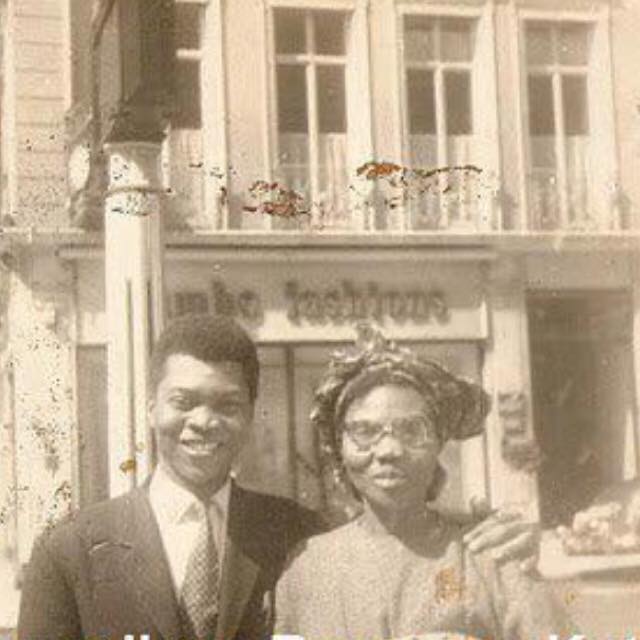
African feminist and mother of music legend Fela Kuti
As a youth, he took lessons in piano and percussion before studying (1959) classical music at Trinity College London.
While in London, he encountered various musical styles by playing piano in jazz and rock bands. Returning to Nigeria in the mid-1960s, he reconstituted Koola Lobitos, a band with which he had played in London.

Koola Lobitos
Koola Lobitos was the prototype band Fela Kuti set up before changing the name to Africa 70 in 1970. Koola Lobitos Featuring VC 7 is a name used by the Koola Lobitos band when they recorded without Fela, with bassist Ojo Okeji singing lead vocals. The Afro-beat sound emerged from that group’s experiments.
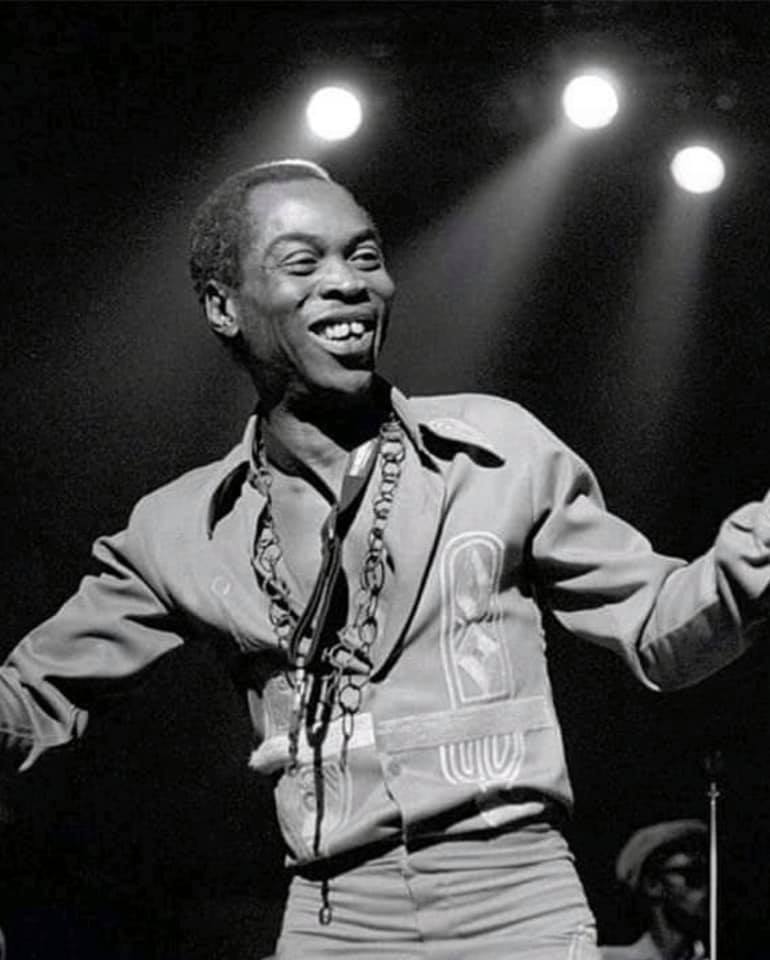
“Following his 1969 tour of the United States, where he was influenced by the politics of Malcolm X, the Black Panthers, and other militants, Kuti’s music became increasingly politicized. He exhorted social change in such songs as “Zombie,” “Monkey Banana,” “Beasts of No Nation,” and “Upside Down.” Fela (as he was popularly known) and his band, which was known variously as the Nigeria 70, Africa 70, and later the Egypt 80, performed for packed houses at the early-morning concerts that they staged at Fela’s often-raided nightclub in Lagos. The firebrand singer, who gyrated over the keyboard as he sang in English and Yoruba, struck a chord among the unemployed, disadvantaged, and oppressed. His politically charged songs, which decried oppression by Nigeria’s military government, prompted authorities to routinely raid his club, looking for reasons to jail him. Near there he also set up a communal compound, which he proclaimed the independent Kalakuta Republic. As head of the commune, he often provoked controversy and attracted attention by promoting indulgence in sex, polygamy (he married 27 women), and drugs, especially marijuana. A 1977 raid on the complex by Nigerian authorities resulted in his brief incarceration and the death of his mother the following year due to complications from a fall. In exile in Ghana in 1978, he changed his name from Ransome to the tribal Anikulapo.
In 1979 Fela formed a political party, the Movement of the People, and ran unsuccessfully for the presidency of Nigeria. Five years later he was jailed for 20 months on charges of currency smuggling. Upon his release, he turned away from active political protest and left his son, Femi, to carry the torch of Afro-beat music. Fela was jailed again in 1993 for murder, but the charges were eventually dropped. He died as a result of complications from AIDS.”
“Music is a spiritual thing, you don’t play with music. If you play with music you will die young. You see because when the higher forces give you the gift of music…musicianship, it must be well used for the gift of humanity.”
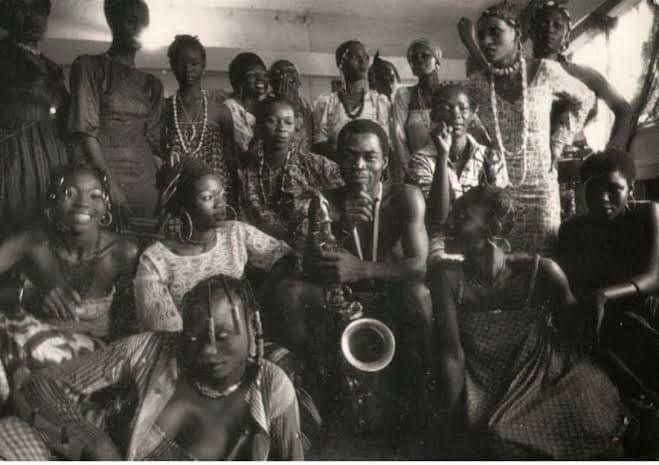
“It’s almost impossible to overstate the impact and importance of Fela Anikulapo (Ransome) Kuti — or just Fela, as he’s more commonly known — to the global musical village. As a producer, multi-instrumentalist, and bandleader with a larger-than-life personality, Kuti combined the raw guitars and jazzy undercurrents of traditional highlife with tight horn arrangements, electrifying polyrhythms, and politically charged lyrical content for the creation of Afrobeat. Kuti had an unparalleled hot streak throughout the ’70s with frequent electrifying concert performances and genre-defining Afrobeat albums like 1975’s Expensive Shit and 1977’s Zombie. A star in Nigeria at the time, his music would have a global ripple effect long after his death in 1997. Countless musicians would eventually catch up with the vision Kuti launched in his ’70s heyday, as the ideas that he was working on found their way into new sounds from jazz players, American rock acts like the Talking Heads, and new waves of Afrobeat revivalists. While the infectiousness and excitement of Afrobeat grew and morphed with subsequent generations, it began with Fela.”
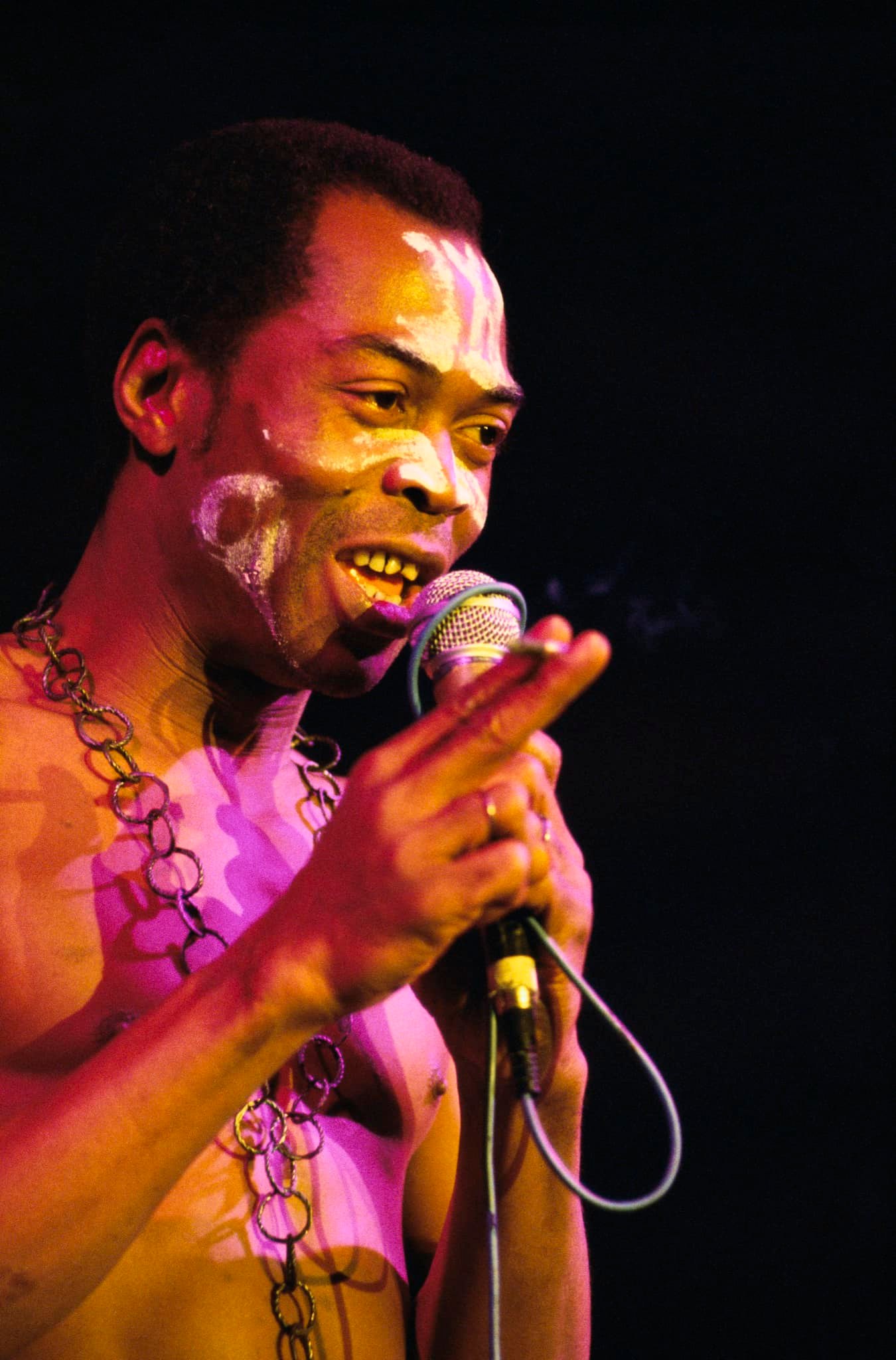
Born in 1938 in Abeokuta, Nigeria, north of Lagos, Kuti grew up in a firmly middle-class family who were politically active. His father was a pastor and talented pianist; his mother was active in the anti-colonial, anti-military Nigerian home rule movement. So, at an early age, Fela experienced politics and music in a seamless combination. His parents, however, were less interested in his becoming a musician and more interested in his becoming a doctor, so they packed him off to London in 1958 for what they assumed would be a medical education; instead, Fela registered at Trinity College’s school of music. Tired of studying European composers, he formed his first band, Koola Lobitos, in 1961, and quickly became a fixture on the London club scene. He returned to Nigeria in 1963 and started another version of Koola Lobitos that was more influenced by the James Brown-style singing of Geraldo Pina from Sierra Leone. Combining this with elements of traditional highlife and jazz, Fela dubbed this intensely rhythmic hybrid “Afro-beat,” partly as a critique of African performers whom he felt had turned their backs on their African musical roots in order to emulate current American pop music trends.

Photo by Ian Watts for Partisan Records.
“In 1969, he brought Koola Lobitos to Los Angeles to tour and record. They toured America for about eight months, using Los Angeles as a home base. It was while in L.A. that Fela hooked up with a friend, Sandra Isidore, who introduced him to the writings and politics of Malcolm X, Eldridge Cleaver (and by extension the Black Panthers), and other proponents of Black nationalism and Afrocentrism. Impressed at what he read, Fela was politically revivified and decided that some changes were in order: first, the name of the band, Koola Lobitos became Nigeria 70; second, the music would become more politically explicit and critical of the oppression of the powerless worldwide. After a disagreement with an unscrupulous promoter who turned them into the Immigration and Naturalization Services, Fela and the band were charged with working without work permits. Realizing that time was short before they were sent back to Nigeria, they were able to scrape together some money to record some new songs in L.A. What came to be known as the ’69 Los Angeles Sessions were remarkable, an indication of a maturing sound and of the raucous, propulsive music that was to mark Fela’s career. Afrobeat’s combination of blaring horn sections, antiphonal vocals, Fela’s quasi-rapping pidgin English, and percolating guitars — all wrapped up in a smoldering groove (in the early days driven by the band’s brilliant drummer Tony Allen) that could last nearly an hour — was an intoxicating sound. Once hooked, it was impossible to get enough.
Upon returning to Nigeria, Fela founded a communal compound-cum-recording studio and rehearsal space he called the Kalakuta Republic, and a nightclub, the Shrine. It was during this time that he dropped his given middle name of “Ransome,” which he said was a slave name, and took the name “Anikulapo” (meaning “he who carries death in his pouch”). Playing constantly and recording at a ferocious pace, Fela and the band (who were now called Africa 70) became huge stars in West Africa. His biggest fan base, however, was Nigeria’s poor. Because his music addressed issues important to the Nigerian underclass (specifically a military government that profited from political exploitation and disenfranchisement), Fela was more than simply a pop star; like Bob Marley in Jamaica, he was the voice of Nigeria’s have-nots, a cultural rebel. This was something Nigeria’s military junta tried to nip in the bud, and from almost the moment he came back to Nigeria up until his death, Fela was hounded, jailed, harassed, and nearly killed by a government determined to silence him. In one of the most egregious acts of violence committed against him, 1,000 Nigerian soldiers attacked his Kalakuta compound in 1977 (the second government-sanctioned attack). Fela suffered a fractured skull as well as other broken bones; his 82-year-old mother was thrown from an upstairs window, inflicting injuries that would later prove fatal. The soldiers set fire to the compound and prevented firefighters from reaching the area. His recording studio, all his master tapes, and musical instruments were destroyed.
After the Kalakuta tragedy, Fela briefly lived in exile in Ghana, returning to Nigeria in 1978. In 1979, he formed his own political party, MOP (Movement of the People), and at the start of the new decade renamed his band Egypt 80. From 1980 to 1983, Nigeria was under civilian rule, and it was a relatively peaceful period for Fela, who recorded and toured nonstop. Military rule returned in 1983, and in 1984 he was sentenced to ten years in prison on charges of currency smuggling. With help from Amnesty International, he was freed in 1985.
As the ’80s ended, Fela recorded blistering attacks against Nigeria’s corrupt military government, as well as broadsides aimed at Margaret Thatcher and Ronald Reagan (most abrasively on the album Beasts of No Nation). Never what you would call progressive when it came to relationships with women or patriarchy in general (the fact was that he was sexist in the extreme, which is ironic when you consider that his mother was one of Nigeria’s early feminists), he was coming around to the struggles faced by African women, but only just barely.
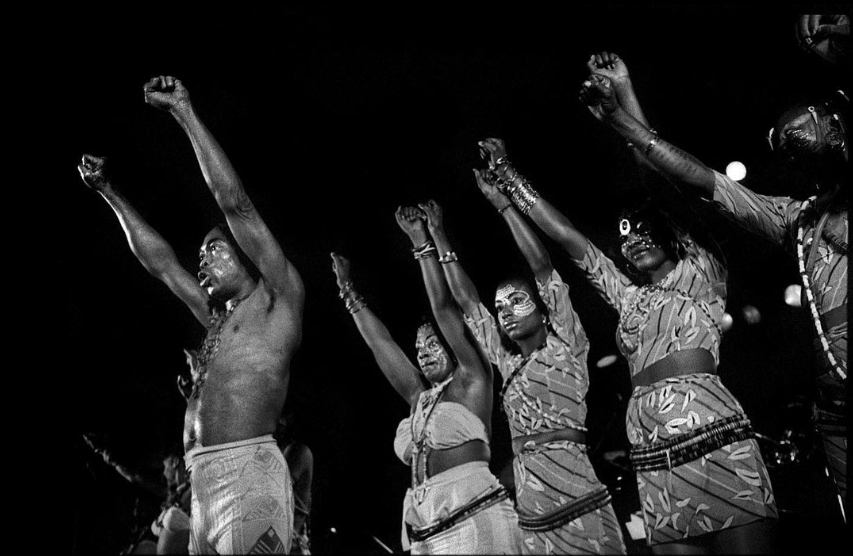
Fela’s musical output slowed throughout the ’90s as he grew increasingly unwell physically. His death on August 3, 1997, of complications from AIDS deeply affected musicians and fans internationally, as a musical and sociopolitical voice on a par with Bob Marley was silenced. A press release from the United Democratic Front of Nigeria on the occasion of Fela’s death noted: “Those who knew you well were insistent that you could never compromise with the evil you had fought all your life. Even though made weak by time and fate, you remained strong in will and never abandoned your goal of a free, democratic, socialist Africa.” This is as succinct a summation of Fela’s political agenda as one is likely to find. ~ John Dougan, Rovi
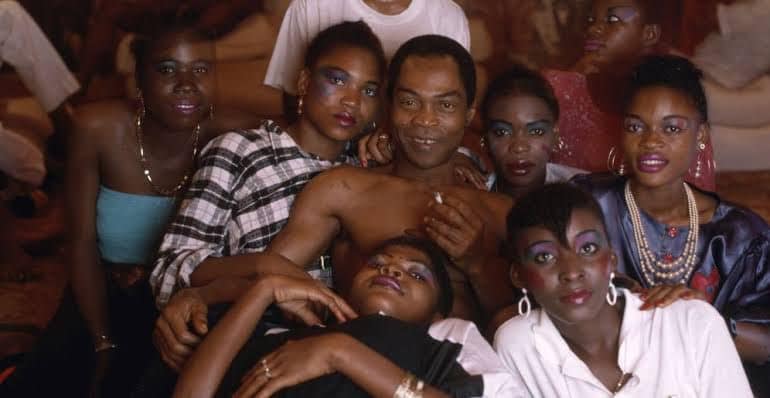
Legendary Afrobeat musician, Fela Kuti married 27 of his backup dancers in one day after he had asked all the ladies in his band if they wanted to marry him. When all 27 of them agreed to be his wives, Fela called 12 traditional priests to preside over the wedding ceremony which took place at a hotel in Lagos, Nigeria on the 20th of February 1978.
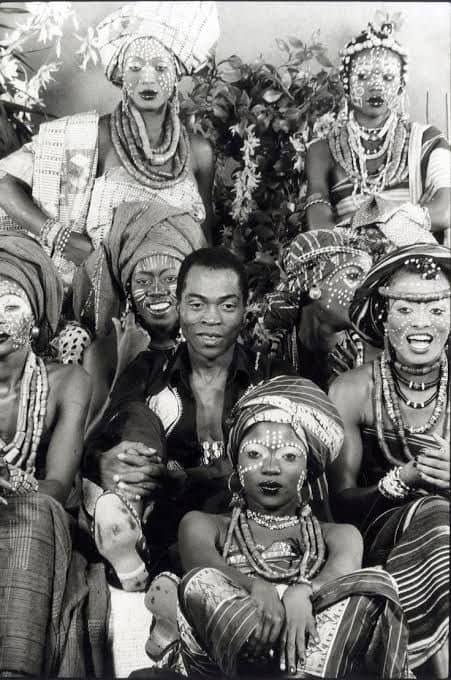
For a honeymoon, Fela took all his 27 wives to Ghana.
However, eight years later in 1986, the late Fela divorced all of them at the same time with the claim that; “Marriage brings jealousy and
selfishness”

“Music is a weapon of the future/music is the weapon of the progressives/music is the weapon of the givers of life”
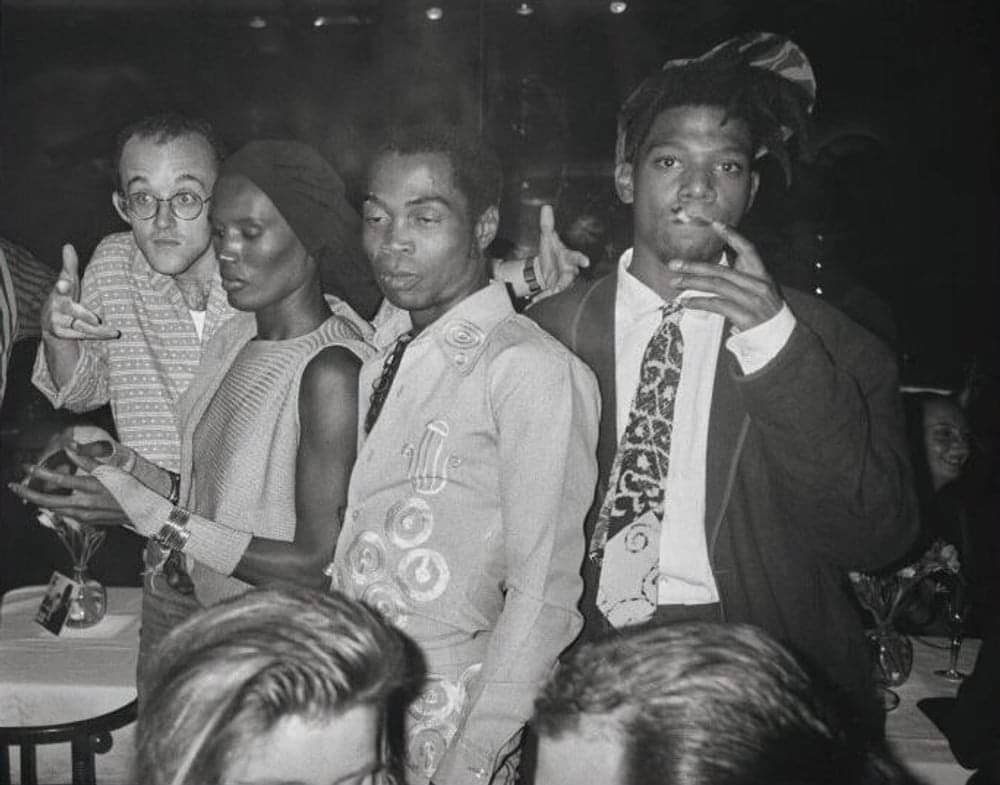
Keith Haring, Grace Jones, Fela Kuti, and Jean-Michel Basquiat.
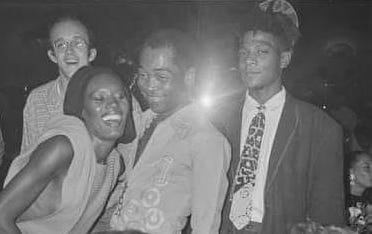
Keith Haring, Grace Jones, Fela Kuti, and Jean-Michel Basquiat – New York, 1986 by Andy Warhol

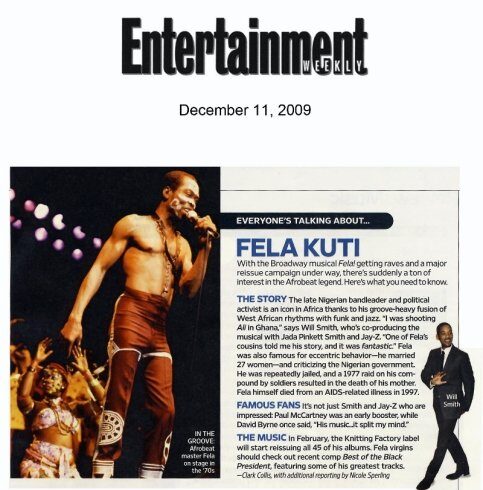
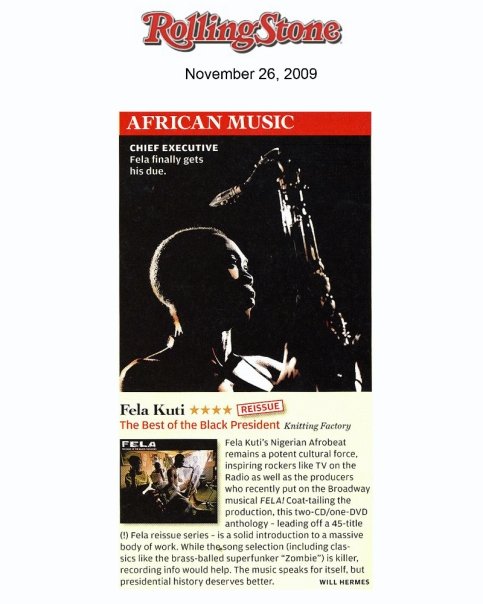

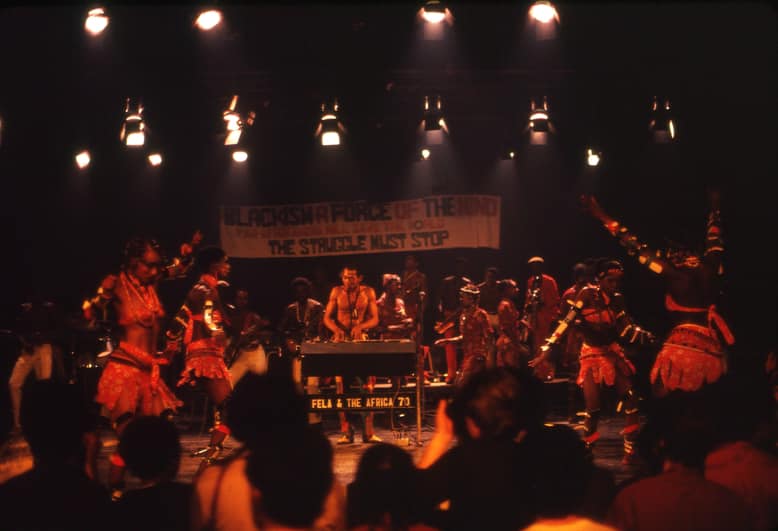
Fela and the Africa 70 perform for a crowd with a strong message: The Struggle Must Stop!


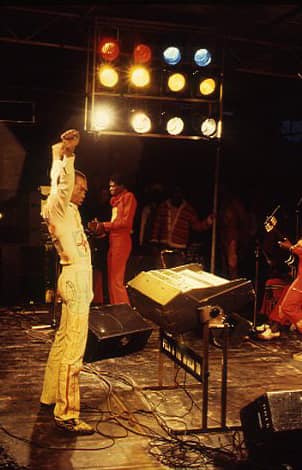
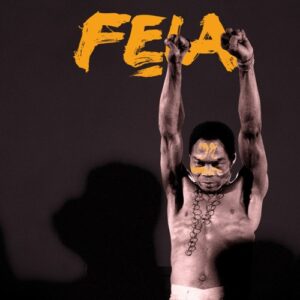
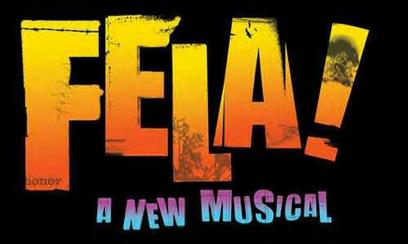
Fela! is a musical with a book by Bill T. Jones and Jim Lewis, based on music and lyrics by the late Nigerian singer Fela Kuti, with additional music by Aaron Johnson and Jordan McLean and additional lyrics by Jim Lewis. It is based on events in the life of groundbreaking Nigerian composer and activist Fela Anikulapo Kuti. It portrays Kuti in the days when he was the target of 1,000 government soldiers assigned to end his public performances at the legendary Lagos nightclub The Shrine.
FELA! Musical (off-Broadway)
FELA! is a new musical that is directed and choreographed by Tony Award winner Bill T. Jones with a book by Jim Lewis, in which audiences are welcomed into the extravagant, decadent, and rebellious world of Afrobeat legend Fela Kuti. Using his pioneering music (a blend of jazz, funk, and African rhythm and harmonies), FELA! explores Kuti’s controversial life as an artist, political activist, and revolutionary musician. Featuring many of Fela Kuti’s most captivating songs and Bill T. Jones’ imaginative staging, this new show is a provocative hybrid of concert, dance, and musical theater.
The musical ran Off-Broadway for one month in 2008. It premiered on Broadway at the Eugene O’Neill Theatre on November 23, 2009, and ran until January 2011. The Off-Broadway production won the Lucille Lortel Awards for Best Musical, Outstanding Choreographer for Bill T. Jones, and Outstanding Costume Design for Marina Draghici. The Broadway production received eleven 2010 Tony Award nominations and won Best Choreography, Best Costume Design in a Musical, and Best Sound Design of a Musical. Alex Gibney’s 2014 documentary film Finding Fela followed aspects of the Broadway musical and drew heavily on interviews with Jones.


Productions
“Fela! opened at the Off-Broadway 37 Arts Theatre B on September 4, 2008, and closed on October 5, 2008. It was conceived by Bill T. Jones, Steve Hendel, and Jim Lewis, directed and choreographed by Jones. The production was designed by Marina Draghici (scenery and costumes) Robert Wierzel (lighting) Peter Nigrini (projection) and Robert Kaplowitz (sound). The cast featured Sahr Ngaujah as Fela and Abena Koomson as Funmilayo, Fela’s mother.
The Broadway production began previews at the Eugene O’Neill Theatre on October 19, 2009, and opened officially on November 23. Again directed and choreographed by Jones, the cast included Ngaujah and Kevin Mambo as Fela, Saycon Sengbloh and Michelle Williams as Sandra (Williams played Sandra in 2013), and Lillias White as Funmilayo. Patti LaBelle replaced Lillias White as Funmilayo on September 14, 2010. The production closed on January 2, 2011. The Broadway production received eleven Tony Award nominations, including one for Best Musical, the most of any production that season, along with the revival of La Cage aux Folles.
For both productions, Kuti’s music has been arranged and performed by the Brooklyn-based Antibalas and features the tenor saxophone soloist Stuart D. Bogie.
The London production staged at the National Theatre’s Olivier Theatre, began previews on November 6, 2010, with an opening night on November 16. It ran in repertoire with other National Theatre productions and was simulcast internationally in 2011 as part of National Theatre Live. Sahr Ngaujah and Kevin Mambo appeared in the cast, as well as Dele Sosimi, Fela’s former keyboard player, reprising his own role. In 2011 a production ran at Sadler’s Wells in London’s Islington.
Fela! toured in North America. Its opening performance was held in September 2011 at the Harman Center for the Arts in Washington, D.C. The production opened in Canada in October 2011 at the Canon Theatre in Toronto, starring Sahr Ngaujah and Adesola Osakalumi, with a scheduled run until November 2011. From November to December 2011 it played at the Curran Theatre in San Francisco. From December 2011 to January 2012 the production played in the Ahmanson Theater of the Los Angeles Music Center, where it returned for a second run in April and May 2013. The musical had a limited return engagement on Broadway at the Al Hirschfeld Theatre from July 2012 to August 2012. The musical then continued on its world tour, playing in Australia, Japan, and a return to Africa, among other venues.” –
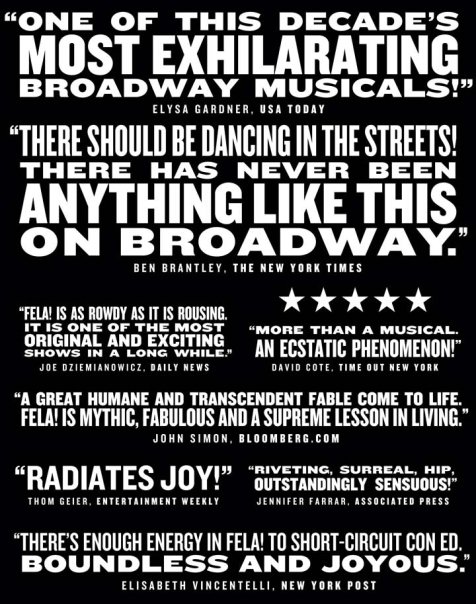
“Fela! takes place around 1977, at the height of Fela Kuti’s influence as a composer and performer in Nigeria. Kuti was an originator of the Afrobeat sound, and the musical opens with him addressing the audience from a concert at his club, the Afrika Shrine in Nigeria’s largest city, Lagos. Kuti indicates that the Afrika Shrine had become a hugely popular venue, and a gathering place for youth opposed to Nigeria’s military dictatorship. As one critic describes much of the first half of the show:
It’s part musicology lesson as Kuti explains how he discovered the Afrobeat sound by pulling together the drums from West African highlife and the ragged guitars from James Brown with traditional call-and-response vocals. As a front-man-in-training rambling around London in the early 1960s, he absorbed the influences of the two different shades of cool represented by Frank Sinatra and Miles Davis.
Kuti reveals how torn he is between his respect for the example set by his mother, Funmilayo, a teacher and Nigerian civil rights activist, and his quest for fame and sometimes hedonism. He gradually becomes more involved in open opposition to Nigeria’s military regime, and his lyrics become overtly political. The regime responds to the provocation with increasingly violent retaliation. Kuti perseveres and releases Zombie, an international hit openly critical of the Nigerian government. The show depicts the army raid of Kuti’s compound (a commune he called Kalakuta Republic[24]), reportedly by 1000 soldiers, which followed the release of Zombie. The raid culminates with the torture of Kuti, his wives, and other commune residents, and the murder of his mother. The show concludes with a protest staged by Kuti in October 1979, accompanied by his family and members of the Young African Pioneers. The protest was held on the day before General Olusegun Obasanjo was to retire from the Nigerian presidency for the first time. Kuti held Obasanjo responsible for his mother’s death and publicly defied the regime once again with his protest, leaving a symbolic coffin in front of Obasanjo’s residence at the Dodan army barracks. The show concludes with symbolic coffins being laid on the stage to protest injustices suffered by the people of Nigeria and throughout Africa.”
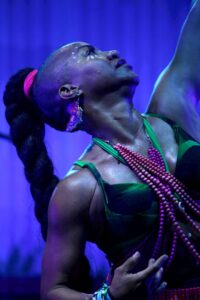
Rachel Oneika Phillips
FELA [ “Don’t Rush” Challenge ]
by Rachel Oneika Phillips
FINALLY! This has been a project of love and sanity for me.
My initial idea was to have women from the original Broadway production of FELA! do a version of the popular “Don’t Rush” Challenge, to underscore the beauty of the African diaspora, using Fela’s Queens as our theme. It evolved into an even more meaningful project with layers of celebration such as aligning with the ten-year anniversary of the show’s 11 Tony nominations, including Sahr as Fela and Lillias White as Funmilayo Ransome-Kuti. A decade ago, we were at the height of breaking ceilings and blowing minds on Broadway.
Now we are educators, business owners, performers, activists, leaders, and Mothers. Several of these beautiful women included their children who are extensions of Fela’s legacy through their parents teaching them about his music and powerful messages of rebellion and activism. It’s a bridging of Africa to America, an interlocking of the past, present, and future that leaves me uplifted and hopeful, even amid the global pandemic. The music was facilitated by our own Sahr Ngaujah (Drunken Dragon Sound), Asen James (Rebel A) of FON SoundSystem. I presented the concept and they helped me build it, creating a unique mix that blends afrobeat to afrobeats and afrohouse: for Us by Us. While editing, Africa 70 drummer and elder, Tony Allen transitioned, making the project even more personally pressing. In its final version, this is an homage to the women who are paramount in Fela’s evolution as the Father of Afrobeat: his Queens, Sandra Izsadore, and his formidable mother, Funmilayo Ransome-Kuti.
It doesn’t have to stop, with us. Anyone worldwide, including friends from other casts and shows (London, International, and National Tours, Nigeria), should bring their own vibe and vision to life using Fela’s music as their inspiration and the weapon of narrative and expression. Especially now.
https://www.facebook.com/oneika.phillip…/…/1550920465085702/
My First Show on Broadway was FELA! Original Cast, open to close. A show that broke barriers, a show that received 11 Tony Nominations and won 3!! A production about truth directed by the genius Bill T Jones and co -Choreographed by the phenomenal Maija Garcia! A show that went against the structure of the great white way. FELA was unapologetically BLACK! Proud!!
For a special #DontRushChallenge the women of the original cast pay homage to the women who are paramount in #FelaKuti’s evolution as the Father of #Afrobeat: his Queens, the Women Of Kalakuta, Sandra Izsadore, and his formidable mother, Funmilayo Ransome-Kuti. 💃🏾
Rachel Oneika Phillips
Called “The first Grenadian woman on Broadway…” Oneika’s Broadway credits include the Tony Award-winning FELA!, Amazing Grace (The Musical), and assistant to the choreographer on the critically acclaimed Violet. She found her voice as Anita in the 50th Anniversary International Tour of Jerome Robbins’s West Side Story, nominated for The West End’s Olivier Award for Best Musical Revival, winning the Theatergoer’s Choice Award in the same category. –
STAGE CREDITS
Black No More [Off-Broadway]
World Premiere Production, 2022
Performer
SpongeBob SquarePants [Broadway]
Original Broadway Production, 2017
Ensemble
Amazing Grace [Broadway]
Original Broadway Production, 2015
Ensemble
Amazing Grace [Chicago]
World Premiere Production, 2014
Ensemble
Fela! [Broadway]
Broadway Return Engagement, 2012
Performer
Fela! [US Tour]
National Tour, 2011
Ensemble
Sandra (Understudy)
Fela! [Broadway]
Original Broadway Production, 2009
Ensemble [Replacement]
BROADWAY WORLD
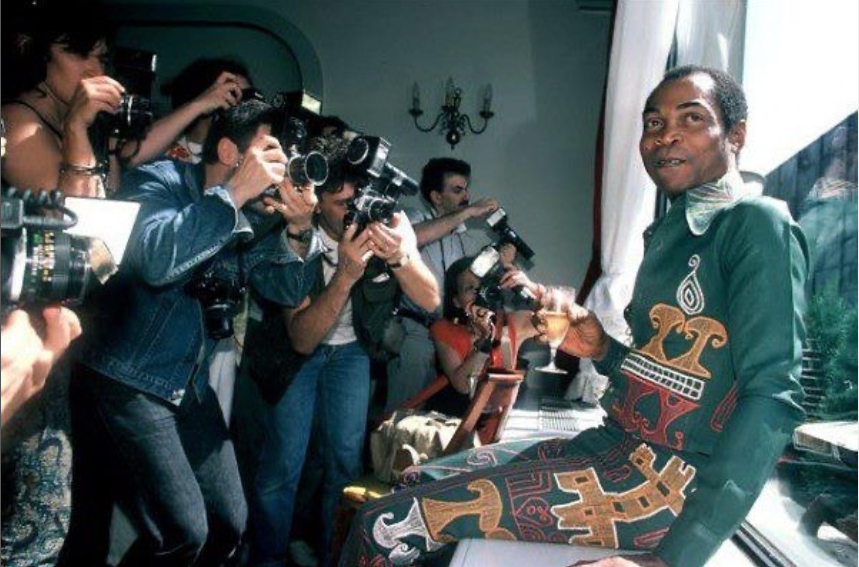
“Given his early demise, Fela seems to have tempted fate when he gave himself the title of Anikulapo, the holder of death. For the moment, however, through his sons and his music, Fela lives.”
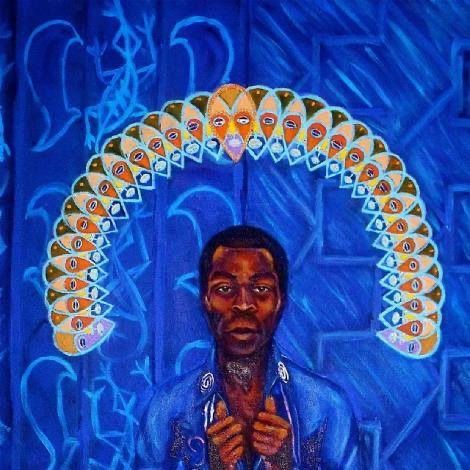
Malik Seneferu (Artist)
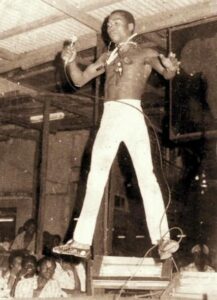 LINKS
LINKS
https://www.theguardian.com/music/2010/oct/31/fela-kuti-musical-neil-spencer
https://www.inspiringquotes.us/author/3388-fela-kuti
https://www.allmusic.com/artist/fela-kuti-mn0000138833/biography
https://en.wikipedia.org/wiki/Fela!
https://www.facebook.com/felakuti
https://www.instagram.com/felakutiofficial/
https://www.broadwayworld.com/people/Oneika-Phillips/#bio
https://www.theguardian.com/music/2010/nov/09/fela-anikulapo-kuti-musical-sued

NO COPYRIGHT INFRINGEMENT INTENDED
{ For Educational and Entertainment purposes only }

